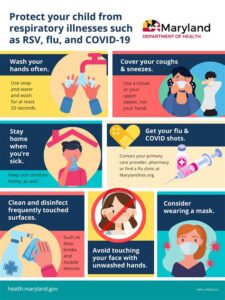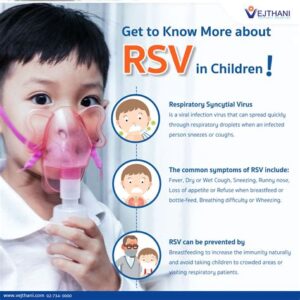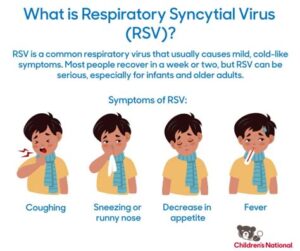Explore the importance, safety, and effectiveness of RSV vaccination for pregnant women, along with expert recommendations for a hAs the medical community continues to evolve in its understanding of maternal and fetal health, the introduction of the RSV vaccine has sparked considerable discussion, especially among expectant mothers. Respiratory syncytial virus (RSV) poses significant risks to infants, making prevention a key focus for pregnant women. With platforms like Reddit serving as a space for shared experiences and expert opinions, many are seeking clarity on the RSV vaccine’s role during pregnancy. This blog post aims to explore the crucial aspects of RSV vaccination for pregnant women, shedding light on its benefits, safety measures, effectiveness, and the current recommendations surrounding its use. Join us as we delve into this important topic to empower expecting mothers with the knowledge they need to make informed health decisions.
RSV vaccine for pregnant women
Respiratory Syncytial Virus (RSV) is a common virus that can lead to severe respiratory infections, especially in infants. Given the potential risks, there has been a growing interest in the RSV vaccine for pregnant women. Vaccination during pregnancy can be a proactive step to protect both the mother and her newborn from the serious complications associated with RSV.
The benefits of RSV vaccination during pregnancy include providing passive immunity to the newborn. When a mother is vaccinated, her body produces antibodies that can be transferred to her baby through the placenta, offering critical protection during the first few months of life, when infants are particularly vulnerable to RSV infections.
Concerns regarding the safety of the RSV vaccine for pregnant women have been addressed through extensive clinical studies. Regulatory bodies have emphasized that the vaccines currently under review have shown promising safety profiles, with no significant adverse effects reported. This safety reassures expecting mothers that they can receive the vaccination without undue risks.
In summary, the RSV vaccine for pregnant women is emerging as an essential strategy for safeguarding newborns against respiratory complications. By understanding the science and benefits behind the vaccine, expectant mothers can take informed steps in protecting their health and that of their infants.
Benefits of RSV vaccination during pregnancy
The Respiratory Syncytial Virus (RSV) poses significant risks for infants and young children, making it essential for pregnant women to consider protection methods. The RSV vaccine aims to provide vital immunity to both the mother and her unborn child.
- Enhanced Immune Protection: Vaccination helps build antibodies in the mother that are transferred to the baby during pregnancy, offering vital protection against RSV.
- Reduced Risk of Severe Illness: Infants whose mothers receive the RSV vaccine have shown a lower risk of hospitalization and severe illness from RSV infections.
- Healthier Newborn Outcomes: Vaccination can contribute to healthier birth outcomes, ultimately reducing complications related to RSV for both the mother and child.
Research supports the effectiveness of the RSV vaccination in reducing the chances of infection. Pregnant women who receive the vaccine not only protect themselves but also nurture their baby’s health by passing on important immunity before birth.
Furthermore, the vaccine is designed with the safety of both the mother and child in mind. With extensive studies confirming that vaccinating during pregnancy poses minimal risks, many healthcare professionals advocate for it as a proactive health measure. Ensuring that expectant mothers are vaccinated is crucial for public health efforts to combat RSV.
In summary, the benefits of RSV vaccination during pregnancy go beyond just individual protection; they create a healthier environment for newborns who are more vulnerable to respiratory infections. As awareness grows, it’s vital for pregnant women to consult their healthcare providers about the RSV va
Safety of RSV vaccine for pregnant women
As the RSV vaccine becomes more widely discussed, many expectant mothers are concerned about the safety of receiving the shot during pregnancy. The respiratory syncytial virus (RSV) is a significant concern for infants, making it imperative for mothers-to-be to consider the benefits of vaccination. Current studies suggest that the vaccine is not only safe for pregnant women, but it also provides essential protection for their newborns.
Research has shown that the RSV vaccine has undergone rigorous testing to ensure its safety profile. According to health experts, the vaccine can be administered during the second or third trimester without posing risks to the mother’s health or the fetus. Monitoring during clinical trials has indicated no increased incidence of adverse effects related to the vaccine in pregnant participants.
Additionally, the vaccination aids in transferring antibodies from the mother to the baby, which helps to safeguard the infant from RSV after birth. This protective benefit emphasizes the importance of vaccination in pregnancy and the alignment of this vaccination strategy with the public health goal o
Effectiveness of RSV vaccination for expectant mothers
Respiratory Syncytial Virus (RSV) is a prevalent virus that can lead to severe respiratory infections, particularly in infants and young children. As research evolves, the question of the effectiveness of RSV vaccination for expectant mothers has gained increased attention in medical communities and among expectant parents. Studies indicate that vaccinating pregnant women can significantly reduce the risk of RSV infections in their newborns.
According to recent clinical trials, the administration of the RSV vaccine during pregnancy has shown promising results in enhancing the immunity of newborns. Infants born to vaccinated mothers possess antibodies that provide them with some degree of protection against RSV. This means the vaccination not only safeguards the mother during pregnancy but also creates a protective barrier for the child during their critical first months of life when they are most vulnerable.
Additionally, the findings suggest that the RSV vaccine can effectively reduce hospitalizations and severe respiratory illness linked to the virus. With global efforts to enhance maternal and infant health, the importance of this vaccine cannot be overstated. Pregnant women are encouraged to discuss RSV vaccination options with their healthcare providers to ensure the safest and healthiest outcomes for both mother and child.
Recommendations for RSV vaccination in pregnancy
As respiratory syncytial virus (RSV) continues to pose significant risks to infants, the topic of RSV vaccination during pregnancy has gained considerable attention. Pregnant women are often concerned about the health implications of any vaccination on both themselves and their unborn child. Here are some key recommendations regarding the RSV vaccine for expectant mothers.
1. Consult Healthcare Providers: It is crucial for pregnant women to discuss vaccination options with their healthcare provider. This conversation should include an evaluation of the individual’s health history, current pregnancy status, and any potential risks associated with the RSV vaccine. Such consultations can provide personalized advice and promote informed decision-making.
2. Timing of Vaccination: The timing of receiving the RSV vaccine is another critical aspect. Health authorities generally recommend that vaccinations be administered during the second or third trimester of pregnancy. This timing helps ensure that the mother develops immunity that can be passed on to the baby, offering them essential protection during their vulnerable early months.
3. Stay Informed about Vaccine Safety and Efficacy: Pregnant women should stay updated on the latest research regarding the safety and effectiveness of the RSV vaccine. Many studies indicate that the benefits of vaccination far outweigh potential risks, especially for those at increased risk for severe RSV infection. Trustworthy health organizations and platforms can provide reliable information for anxious mothers.
Overall, RSV vaccination is a vital consideration for expectant mothers aiming to safeguard their newborns from this common yet potentially serious virus. By following these recommendat
Frequently Asked Questions
What is the purpose of the RSV vaccine for pregnant women?
The RSV vaccine is designed to protect pregnant women from respiratory syncytial virus (RSV) and provide antibodies to their unborn children, reducing the risk of serious illness in infants.
How does the RSV vaccine work during pregnancy?
The vaccine stimulates the mother’s immune system to produce antibodies against RSV, which can then be passed to the baby through the placenta, offering the infant protection after birth.
Is the RSV vaccine safe for pregnant women?
Clinical trials have shown that the RSV vaccine is safe for pregnant women, but it is always recommended to consult with a healthcare provider for personalized advice.
What are the potential side effects of the RSV vaccine during pregnancy?
Potential side effects may include mild flu-like symptoms such as soreness at the injection site, fatigue, or mild fever, but these are generally short-lived.
When should pregnant women receive the RSV vaccine?
Pregnant women are usually advised to get the RSV vaccine during the third trimester to maximize antibody transfer to the fetus.
Can the RSV vaccine prevent all respiratory illnesses in infants?
While the RSV vaccine significantly reduces the risk of severe RSV illness in infants, it does not protect against all respiratory illnesses.
Where can I find more information about the RSV vaccine and pregnancy?
Reliable information can be found through healthcare providers, medical associations, or reputable websites dedicated to maternal and child health.





